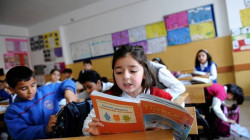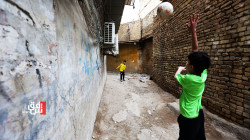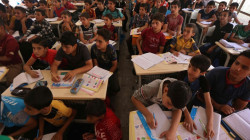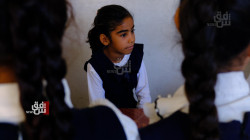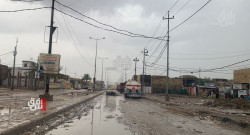Iraq's children face alarming crisis: rising labor, violence, and legal gaps
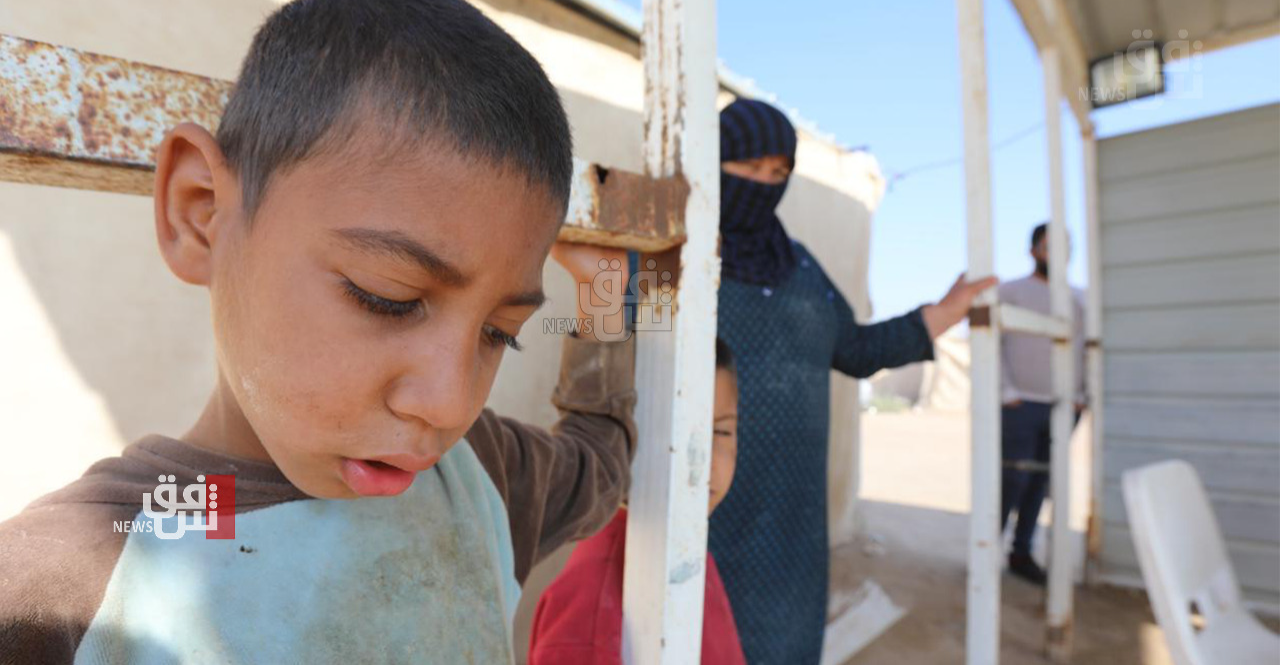
Shafaq News/ Iraq’s children are enduring a crisis marked by escalating child labor, domestic violence, and a severe lack of legal protections, according to experts and organizations monitoring the country’s worsening child welfare situation. As a result, Iraq remains one of the most challenging places in the world for children.
Child Labor Crisis
Iraq ranks as one of the worst countries globally for child labor, with 4.9% of its children engaged in work across various sectors. Dr. Fadel Al-Gharawi, head of the Strategic Center for Human Rights in Iraq, reports that children are predominantly employed in industries, agriculture, and service sectors.
“While these sectors contribute to the country’s economy, they also expose children to dangerous and exploitative labor practices,” he says.
In addition to physical labor, Iraq is grappling with an alarming increase in child begging. Al-Gharawi states that about 57% of child beggars are boys, with 33% being girls. Many of these children are either exploited by criminal gangs or accompany family members who force them into begging. “The situation is further exacerbated by the risks of trafficking and abduction.”
Furthermore, Iraq's children are facing educational barriers, with approximately two million school-age children currently out of school. Al-Gharawi reveals that 30% of children drop out, a situation worsened by the lack of resources and infrastructure for quality education.
Adding to this, 160 children have been victims of human trafficking in 2023 and 2024, shedding light on the country's poor standing in global childhood well-being indices.
While economic factors drive child labor, environmental challenges also leave Iraqi children vulnerable.
The Impact of Climate Change on Children
Iraqi children are also among the most vulnerable to the impacts of climate change, with rising temperatures, water scarcity, and food insecurity exacerbating their hardship. According to UNICEF, Iraq ranks 61st out of 163 countries on the Children’s Climate Risk Index. Additionally, the United Nations Environment Program (UNEP) highlights Iraq as the fifth most vulnerable country to extreme environmental conditions, including food and water shortages, which disproportionately affect its younger population.
The systemic issues rooted in economic struggles and legal inadequacies have also contributed to a broader social instability, where violence against children is on the rise.
Root Causes: Economic Struggles and Weak Legal Framework
The high rates of child labor in Iraq are largely driven by economic factors. Al-Gharawi points out that family income declines, high unemployment, and poverty levels are pushing families to rely on child labor to make ends meet. further aggravating the problem is Iraq’s fragile legal system, with existing child rights protections insufficient to address these challenges.
“The lack of enforcement mechanisms leaves children exposed to exploitation, violence, and trafficking.”
Rising Violence and Social Instability
Amal Al-Kubaishi, a social researcher, Al-Kubaishi describes a grim picture of children’s rights in Iraq, noting that the broader deterioration in human rights is reflected in the increasing vulnerability of children. Al-Kubaishi attributes this to a combination of rampant violence, widespread availability of weapons, and weak legal protections, contributing to what she describes as a "dangerous regression" in children’s safety and well-being.
“Violence against children, including abuse and neglect, has risen sharply. Social media trends and reports of child abuse reflect the growing concern, while fragmented families and high divorce rates contribute to an unstable environment for many children…The prevalence of violence is one of the most alarming violations children face,” Al-Kubaishi explains to Shafaq News.
Additionally, the deteriorating state of Iraq’s education system, with rising dropout rates and inadequate facilities, further exacerbates the challenges facing children. “The overall decline in children’s health indicators, which show a steady worsening, points to systemic issues affecting the country’s youth.”
Al-Kubaishi calls for urgent reforms, stressing that the government must fulfill its international commitments to children’s rights. “Strengthening protective measures to curb violence and improve education and healthcare services is critical to halting the further decline of Iraq’s children.”
Legal Protections and Policy Failures
Iraq is a signatory to critical international agreements such as the International Labour Organization’s Conventions 138 and 182, which aim to eliminate child labor and the worst forms of exploitation. However, despite these commitments, child labor remains pervasive. Experts call for urgent policy reforms to strengthen child protection and labor laws, including harsher penalties for employers exploiting children.
Al-Gharawi points out that despite Iraq’s international commitments to children’s rights, the country still lags in passing effective domestic laws to protect children.
“Iraq has ratified international conventions, but its domestic legislation, particularly the child protection law, remains unpassed,” he points out. “The law, still in limbo, fails to align with the Constitution or international child rights standards, leaving children vulnerable to exploitation and violence.”
Southern Iraq’s Struggle
Haqi Kareem Hadi, head of the Association for the Protection and Development of the Iraqi Family, underscores the dire situation in the country, particularly in southern Iraq, where children face compounded challenges, including violence and exploitation.
He attributes this to “the lack of enforcement of mandatory education laws and oversight of child labor.” Hadi, speaking to Shafaq News, warns of a growing illiteracy crisis in southern Iraq as the number of school dropouts rises.
Both Al-Gharawi and Hadi urge the Iraqi government to take decisive action to address these issues, including establishing a National Child Protection Day on June 12 and creating a Youth Fund to provide support for children until they reach adulthood.
“Without these measures, Iraq risks perpetuating cycles of poverty, exploitation, and educational neglect for its youngest citizens.”
UNICEF's Role and the Rise in Violations
Recent data from UNICEF further illustrates the alarming rise in violations against children in Iraq. According to a 2024 United Nations report on children and armed conflict, 381 violations affecting 289 children were recorded, including recruitment by armed groups, killings, maiming, and sexual violence.
Among the recorded violations, 107 children were killed, 129 maimed, and 32 recruited by armed groups. The report also highlights the targeting of schools and hospitals, with six attacks reported, and the denial of humanitarian access in 76 cases.
In response, both the Iraqi government and the United Nations have stepped up efforts to address child protection issues. Iraq signed an action plan with the UN to prevent the recruitment of children by armed groups, particularly the Popular Mobilization Forces (PMF), and to facilitate the release and reintegration of affected children. Moreover, efforts to clear explosive remnants of war and provide mine risk education are underway, aiming to protect children from these persistent dangers.
Despite the international community’s efforts, Iraq still faces challenges in passing and implementing domestic laws that adequately protect its children.
Progress On The Child Protection Law
Dunya Al-Shammari, head of the Women, Family, and Childhood Committee in the Iraqi Parliament, has been leading the charge to pass the long-awaited Child Protection Law. While the law has undergone several revisions, it still fails to address many critical issues facing Iraqi children.
Al-Shammari explains to Shafaq News that the law, originally just three pages long, has now been amended with a 100-page revision. “Despite these changes, the law remains stalled in Parliament, with the committee’s push for a second reading halted by a letter from the General Secretariat urging additionnal amendments.”
The proposed amendments focus on issues such as child begging, human trafficking, and the status of children in private shelters. Al-Shammari stresses the importance of government-run shelters to ensure proper oversight and care for vulnerable children.
The law is also expected to include provisions for gifted children, such as those with extraordinary intelligence or achievements in fields like artificial intelligence, ensuring they receive the care and support they need.
As Iraq’s children continue to suffer from these overlapping crises, the urgent need for legal reforms and stronger protections has never been clearer.
